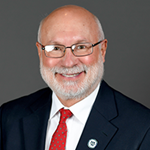I am disappointed so many people are concerned about the “deficits” students will demonstrate when they return to full-time, in-person learning.
It’s incredibly disconcerting to be concerned about learning deficits in the face of a pandemic affecting millions of people around the country and world.
This speaks to my biggest fear for our students when they return to in-person learning. In our determination to “catch them up,” I fear we will lose who they are and what they have learned during this unprecedented era.
What on earth are we trying to catch them up on? The models no longer apply; the benchmarks are no longer valid; the trend analyses have been interrupted. We must not forget that those arbitrary measures were established under very different circumstances. We must make those invalid measures as obsolete as the rotary-dial telephone. They simply do not apply.
When the children return full-time to school, they will return with a new history that educators will need to help them make sense of. When the children return to school in person, we will need to listen to them and their stories. They have endured a year having no parallel in modern times. No assessment applies to who they are or what they have learned.
Remember, their brains did not go into hibernation during this year. Their brains may not have been focused on traditional school material, but they did not stop either.
Their brains may have been focused on where their next meal is coming from, how to care for a younger sibling, how to deal with missing their relatives and friends, or how to deal with the death of a loved one. Our job is to welcome them back into a safe and supportive learning environment.
Teachers provide an essential connection between what is and what can be. So, I plead with educators to greet children where they are, not where we think they “should be.” Children missed their teachers and classmates, not the tests and homework. Greet them back with art supplies and writing material and music and dance. Greet them with stories and books that will help them express and make sense of what has occurred in their lives during this past year.
Children do not need to be fixed. They are not broken. The time was not lost; it was invested in contending with and surviving an historic period in their lives—in all our lives. They need to be heard and supported. They need to be given as many tools as we can provide to nurture resilience and help them adjust to a post-pandemic world.
This will help them—and us—achieve a lot more than can be measured by any assessment tool ever devised.


Share this content